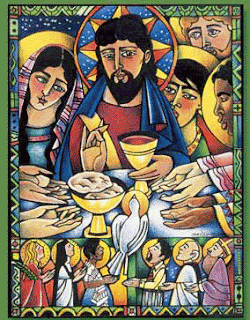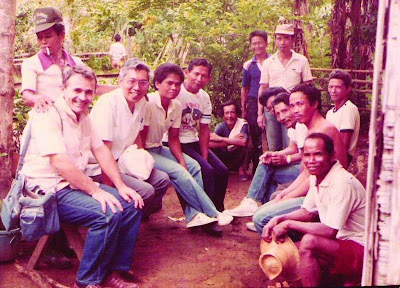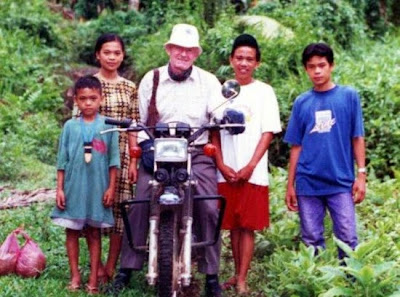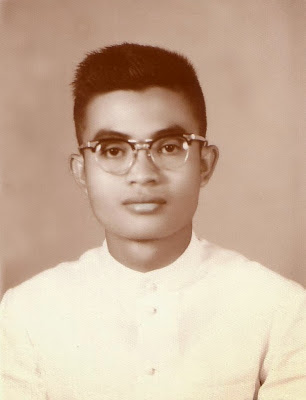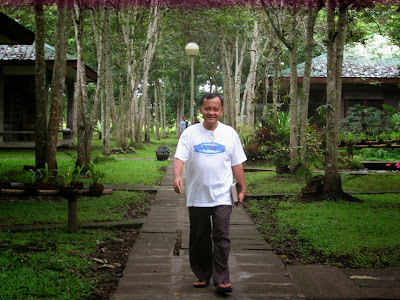When the priest goes to the foot of the Altar
Jesus enters the garden
O Lord Jesus Christ, Son of the Living God, Who was pleased voluntarily to endure mortal terror and anguish at the view of Your approaching passion, give me grace henceforth to consecrate all my sorrows to You. O God of my heart! Assist me to support my trials in union with Your agony, that through the merits of Your Passion they may become profitable to my soul.
At the Beginning of Mass
Prayer of Jesus in the garden
Lord Jesus Christ, Son of the Living God, Who was pleased to be comforted by an angel in Your dreadful agony, grant through the merits of Your prayer in the garden that Your consoling angel may ever assist me in mine.
At the Confiteor
Jesus prostrated in the garden
Lord Jesus Christ, Who in the excess of Your anguish, was bathed in a sweat of blood while praying to Your Father in the Garden of Olives, grant that I may participate in Your sorrows by sympathy, and unite bitter tears of repentance with Your tears of blood.
The Priest kisses the Altar
Judas betrays Jesus with a kiss
Lord Jesus Christ, who submitted to the embrace of Judas, preserve me by Your grace, from misfortune of ever betraying You, and assist me to repay calumny and injustice with cordial charity and active kindness.
The priest goes to the Epistle side.
Jesus is dragged to prison
Lord Jesus Christ, Who submitted to be bound with ropes by the hands of wicked men, break, I beg You, the chains of my sins and attach the powers of my soul and body closely to You by bonds of charity, that they may never escape from the salutary restraint of perfect submission to Your Divine Will.
At the Introit
Jesus receives a blow
Lord Jesus Christ, Who was conducted as a criminal to the house of Annas, grant that I may never suffer myself to be led into sin by temptations of the evil spirit, or the evil suggestions of my fellow creatures, but that I may be securely guided by the Divine Spirit in the perfect accomplishment of Your holy ordinances.
At the Kyrie Eleison
Jesus is thrice denied by Peter
Lord Jesus Christ, Who submitted to be thrice denied in the house of Caiphas, by the head and prince of the apostles preserve me from the danger of evil company, that I may not be exposed to the misfortune of separation from You.
At the Dominus Vobiscum
Jesus looks at Peter and touches his heart
Lord Jesus Christ, who by one glance of love did melt the heart of St. Peter into a fountain of penitential tears, grant by Your mercy that I may weep for my sins and never by word or deed deny You, who art my lord and my God.
At the Epistle
Jesus is conducted to the house of Pilate
Lord Jesus Christ, Who was pleased to be led before Pilate, and there falsely accused, teach me to avoid the deceits of the wicked, and to profess my faith by the constant practice of good works.
At the Munda Cor Mum
Jesus is led to Herod
Lord Jesus Christ, who silently endured to be again falsely accused before Herod, grant me patience under calumny, and silence under outrages.
At the Gospel
Jesus is mocked as a fool and sent back to Pilate
Lord Jesus Christ, Who submitted to be sent as a fool by Herod to Pilate, who though enemies before, then became friends, strengthen me so powerfully by Your grace, that instead of apprehending the machinations of the wicked, I may learn to bear their malice as You did and thus render their injustice profitable to my soul.
The Priest uncovers the Chalice
Jesus is stripped of His garments
Lord Jesus Christ, Who was pleased to be despoiled of Your garments and most inhumanly scourged for love of me, grant me grace to lay aside the burden of my sins by a good confession, and never to appear before You despoiled of the virtues of a Christian.
At the Offertory
Jesus is scourged
Lord Jesus Christ, Who was pleased to be fastened to the pillar and torn with stripes, grant me grace to patiently endure the scourges of Your paternal correction and never more to grieve Your Heart with my sins.
The Priest offers the Chalice
Jesus is crowned with thorns
Lord Jesus Christ, Who submitted, through love for me, to be crowned with thorns, grant that my heart may be so penetrated with the thorns of repentance in this world, that I may deserve to be hereafter crowned with You in glory.
The priest washes his fingers
Pilate washes his hands
Lord Jesus Christ, Son of the living God, Who, although declared innocent by Pilate was subjected to the insults and outrages of the Jews, grant me the grace to lead an irreproachable life and at the same time to maintain a holy indifference to the opinions of men.
At the Preface
Jesus is condemned to death
Lord Jesus Christ, Who, though the God of all sanctity, submitted through love for me to a most ignominious condemnation, grant me grace to avoid rash judgments and strengthen me to bear with patience, the injustice of men.
At the Momento for the living
Jesus carries His Cross
Lord Jesus Christ, Who carried your heavy Cross for my salvation, grant that I may voluntarily embrace the cross of mortification and carry it daily for Your love.
At the Communicantes
Veronica wipes with a linen cloth the Face of Jesus
Lord Jesus Christ, Who on Your way to Calvary, said to the holy women that wept for the love of You: "Weep not for me but for yourselves;” give me the grace to weep for my sins with tears of holy contrition and love that will render me agreeable to Your divine Majesty.
Blessing of the Bread and Wine
Jesus is nailed to the Cross
Lord Jesus Christ, Who was nailed to the Cross for my redemption, attaching to it through Your Sacred Flesh, my sins, and the eternal punishment due to them, grant me Your saving fear, that resolutely observing Your Holy precepts, I may ever be attached to the Cross with You.
At the Elevation of the Host
The Cross of Jesus is elevated between Heaven and earth.
Lord Jesus Christ, Who was pleased to be elevated on the Cross and exalted above the earth for the love of me, detach my heart, I beg You, from all terrestrial affections and elevate my understanding to the consideration of Heavenly things.
At the elevation of the Chalice
The Blood of Jesus flows from His wounds.
Lord Jesus Christ, Your sacred wounds are the inexhaustible source of all grace; grant then, that Your Precious Blood may purify my soul from all evil thoughts and prove a salutary remedy for all my spiritual miseries.
At the Momento for the dead
Jesus prays for all men
Lord Jesus Christ, who prayed on the Cross for all men, even for Your executioners, grant me the spirit of meekness and patience, that according to Your precepts and example I may love my enemies and cordially return good for evil.
At the Momento for the dead
Jesus prays for all men
Lord Jesus Christ, who prayed on the Cross for all men, even for Your executioners, grant me the spirit of meekness and patience, that according to Your precepts and example I may love my enemies and cordially return good for evil.
At the Pater Noster
The seven words of Christ
Lord Jesus Christ, Who from the cross recommended Your Blessed Mother to the beloved disciple, and the disciple to Your Mother, receive me, I beg You, under Your protection, and grant that amidst the snares and perils of this world I may never lose the treasure of thy friendship.
At the division of the Host
Jesus expires of the Cross
Lord Jesus Christ, Who before expiring on the Cross commended Your Soul to Your Father, grant that I may die spiritually with You now, and so confide my eternal destiny with confidence to Your hands at the hour of my death.
At the division of the Host
Jesus expires of the Cross
Lord Jesus Christ, Who before expiring on the Cross commended Your Soul to Your Father, grant that I may die spiritually with You now, and so confide my eternal destiny with confidence to Your hands at the hour of my death.
At the Agnus Dei
The conversion of sinners
Lord Jesus Christ, the contemplation of Your torments has excited repentance in many hearts; grant me, through the efficacy of Your painful sufferings and ignominious death, perfect contrition for my past offenses, and the grace to avoid all willful sin.
At the Communion
Jesus is buried
Lord Jesus Christ, Who was pleased to be buried in a new monument, give me a new heart, so that being buried with You, I may attain to the glory of Your resurrection.
At the Ablution
Jesus is embalmed
Lord Jesus Christ, who was pleased to be embalmed and wrapped in a clean linen cloth by Joseph and Nicodemus, give me the grace to receive most worthily, Your Precious Body and Blood in the Holy Sacrament of the Altar, with a heart embalmed with the precious ointment of Your virtues.
After the Communion
The Resurrection of Jesus Christ
Lord Jesus Christ, Who triumphantly issued from the fast sealed monument, grant that, rising from the tomb of my sins, I may walk in newness of life so that when You shall appear in glory I may merit also to appear with You.
At the Dominus Vobiscum
Jesus appears to His disciples
Lord Jesus Christ, who gladdened the hearts of Your Blessed Mother and Your apostles by manifesting Yourself to them after Your Resurrection, grant that, since I cannot be so happy as to behold You in this mortal life, I may hereafter enjoy the unclouded vision of Your glory.
At the Post-Communion
Jesus converses for forty days with His disciples
Lord Jesus Christ, Who after Your Resurrection deign to converse for forty days with Your disciples, instructing them in the mysteries of our faith, increase, I beg You, my knowledge of those Divine Truths, and confirm my belief in them.
At the Post-Communion
Jesus converses for forty days with His disciples
Lord Jesus Christ, Who after Your Resurrection deign to converse for forty days with Your disciples, instructing them in the mysteries of our faith, increase, I beg You, my knowledge of those Divine Truths, and confirm my belief in them.
At the Priest’s blessing
The descent of the Holy Ghost
Lord Jesus Christ, Who sent the Holy Spirit on Your apostles, while engaged in unanimous and persevering prayer, purify my soul, I beg You, that the Paraclete, finding therein a dwelling well pleasing to Him, may adorn it with His gifts and replenish it with His consolations
Thanksgiving after Mass
Lord Jesus Christ, Son of God and Redeemer of men, I humbly thank You for having permitted me to assist today at the Most Holy Sacrifice of the Mass. I beg You, through the efficacy of that adorable Sacrifice, to strengthen me against all temptations, and to grant that, having served You faithfully in this life, I may hereafter attain to the possession of Your glory.
AMEN



